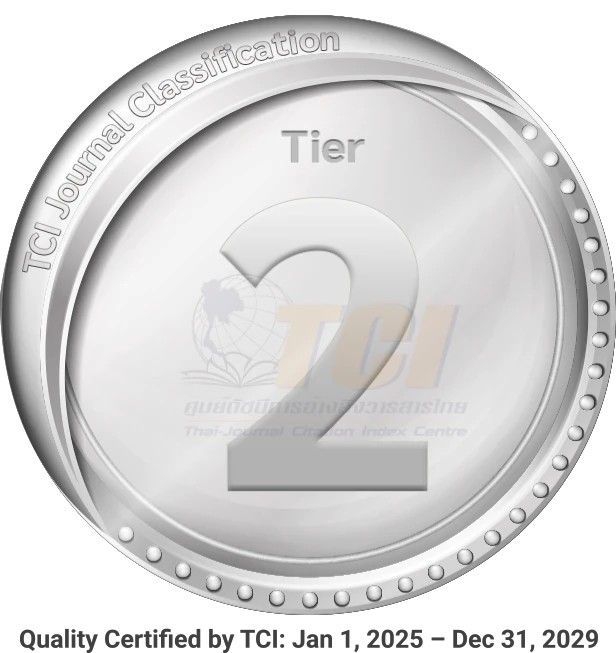Attitudes, Beliefs, and Demographics
Teachers’ Self-Efficacy in Inclusive Education at a Thai Private Bilingual School
Abstract
This study aimed to explore the levels and influences of demographics, attitudes,
and beliefs on self-efficacy in inclusive practices of teachers for students with special education needs in regular classes at a Thai private bilingual school. A survey research design was employed, using questionnaires to collect data with 100 subjects. The IOC
for the validity was performed with the result of 1. The reliability gained from the pretest with 30 teachers outside the sampling using Cronbach’s Alpha Coefficient with the result of 0.860. Descriptive Analysis with Mean, Standard Deviation, Frequency, and Percentage was employed, followed by Inferential Analysis of ANOVA.
The results revealed that in terms of Demographics on Teachers’ Self-Efficacy,
there were statistically significance of: 1) Teachers’ Knowledge of the Local Laws;
2) Confidence in Inclusion; and Training in Inclusive Practices, from the most positive
to the least positive, respectively. As for the Teachers’ Attitudes and Beliefs, these
two factors shared the same levels of influences on Teachers’ Self-Efficacy in terms
of: 1) Collaboration, and Instruction in Inclusive Practices, with the least significant
on Teachers’ Behavior for the Attitudes towards Teachers’ Self-Efficacy, and with
no statistical significance on Teachers’ Behavior for the Beliefs. Accordingly, in order to enhance effective inclusive education at a Thai bilingual school, the results obtained from this study should be used among teachers and stakeholders to see the importance
of the influences of positive attitudes and beliefs on self-efficacy in inclusive teaching
and learning with the expectation that benefits will occur to all students with inclusion
in the regular classrooms.




